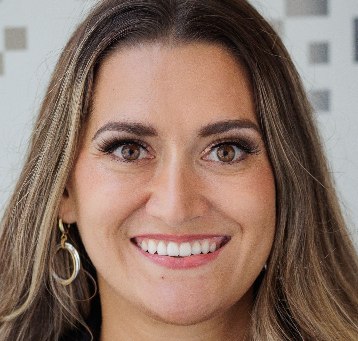Being born with cystic fibrosis, a progressive, genetic lung disease, I have had countless health encounters throughout my life. Through these experiences I have learned the power that lies in self advocating for my health in the clinic setting with my doctors and care teams and my passion is to empower other patients to be active participants in their care too.
Over the last few years have found the value and importance of self-advocacy and started lending my voice as a patient perspective in research serving on various committees with the CF Foundation and serving on advisory boards and in consultant roles with pharmaceutical and healthcare companies developing patient facing lay language materials to support health literacy, reviewing clinical trial protocol designs, and overall helping industry to consider the patient experience throughout their drug development.
I was recently on a podcast sharing an example of a negative experience I had with my doctor and it made me think about trust between patients and their doctors, and how vital communication is. Bad experiences with doctors can contribute to the overall opinion someone has of the healthcare system and lead to poorer health outcomes for people.
During one of our first encounters, as I had just transitioned from pediatric to adult care, my adult CF doctor made assumptions about my treatment adherence and responsibility to my care without understanding the scope of my health history and asking me questions. I felt offended, misunderstood, and dismissed at the time. Luckily our relationship was mended in time, and we now have a very strong patient-to-doctor relationship, but the premise was a lack of clear communication, transparency, and asking questions to understand the full scope of the situation and gather background.
When negative interactions occur between a doctor and patient, patients are far less likely to trust their doctors’ options about their health regimen, leading to potentially less frequent checkups and worse health outcomes. Based on my experiences as a patient advocate in the clinical trial space, patients are also less likely to find out about and enroll in clinical trials, due to less frequent follow up and reduced trust in doctor’s encouragement of participating.
Changing an already established bad relationship to a good one can be challenging, but there are ways to effectively communicate to try to keep patient doctor relationships positive and supportive, if at least amicable. Treat your doctor as an ally, not an adversary.
- Keep in regular contact with doctors as they want the best for you.
- Understand that they have lives outside of their jobs too. Give your doctor some grace in some less than perfect interactions.
- Try to build a connection of mutual respect. You are both experts about your healthcare in different ways. You understand aspects about your condition your doctor may not understand as much, and they may understand treatments, procedures, and methods of care better than you. Together, you can make the best decisions for your care.
This leads me to a crucial part of being involved in our own care and making those decisions together with doctors – seeing ourselves as equal partners.
- Remember that you know the most about your body and the day-to-day symptoms and experiences. Voicing your thoughts about your treatment plan is vital to your overall health and your doctor actually appreciates your input and collaboration.
- If you don’t understand something, insist that your doctor listen to you and explain tests, procedures, and new research. Be eager to understand and gain knowledge about your healthcare. Ask questions because you are gaining knowledge to make an informed decision about your care! If you have an interest in a new treatment or medication you may have heard about through your research, come with questions with appointments. You may actually be sharing some new information with your doctors that they may not have known beforehand.
- When your doctor asks you questions, be honest with your answers, even if you feel embarrassed. Doctors ask the same questions to many patients and don’t think negatively about you for the answers you provide, but it helps them understand your health journey better.
Let’s do our part as patients to take on ownership of our health and do what we can to support the relationship we have with our care providers and doctors to create an environment where optimal health interactions exist and our health remains the number one priority in the care delivery setting.
Ella Balasa is a patient advocate, consultant, and person living with cystic fibrosis. Through opportunities working with healthcare organizations on content strategy, writing, speaking, clinical trial development, and sharing the patient experience she aims to affect the healthcare landscape by raising awareness of rare diseases, promoting self-advocacy to patients, and valuable insights to organizations. Learn more at www.ellabalasa.com.
Not a member of the Society? Please consider joining here: https://participatorymedicine.org/memberships/







Recent Comments